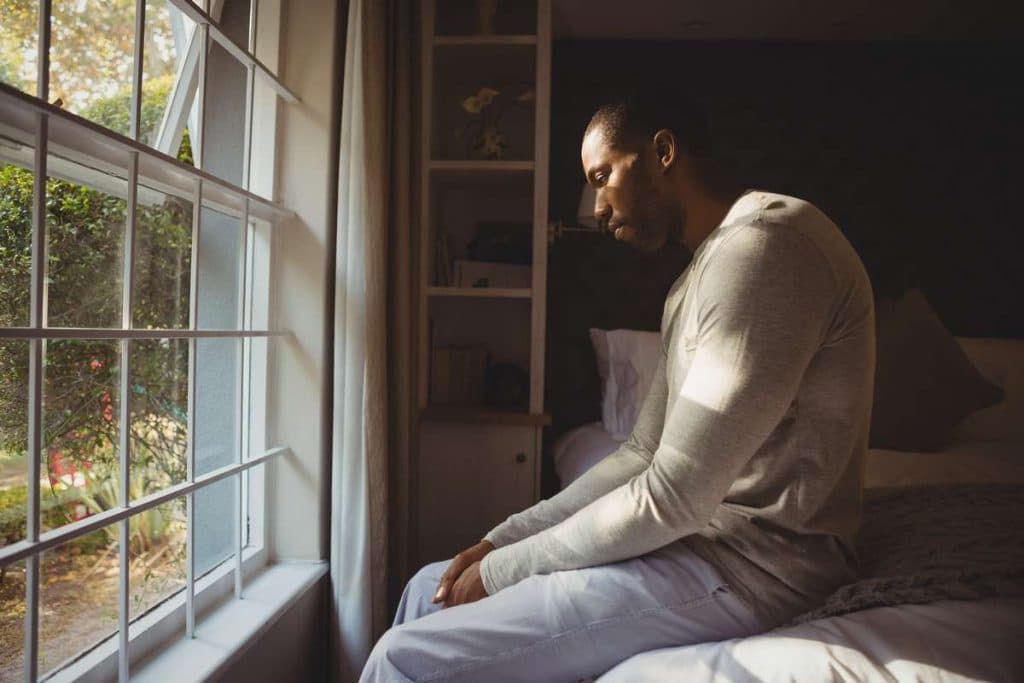The healing process for male survivors of sexual assault is difficult and includes different aspects than female survivors. Complex issues, such as sexual orientation and masculinity, can prevent male survivors from seeking treatment. Here is some useful information to help you understand and assist in their journey to heal.
Male survivors often fear being stigmatized so they rarely disclose their abuse. Healing is impossible as long as their abuse remains a secret. Because of the overwhelming feelings of depression, isolation, anxiety, and anger, many survivors turn to drugs or alcohol to cope and suppress their painful memories and emotions. It takes great courage to face the memories, navigate through the pain, and choose to confide in others for help. As supporters, it is critical that we are careful in how we communicate and show encouragement.

Male Survivors of Sexual Assault
he issues that arise during and after sexual abuse is often difficult to understand. For example, if the victim experienced arousal, they wonder if it is still classified as abuse. Assaults that were coercive in nature rather than a violent incident tend to bring more feelings of shame and guilt. Thoughts beginning with the words, “I should have” cause increased feelings of responsibility and blame. In addition, unlike females, men tend to express their anger outward rather than inward. As a result, until these emotions are dealt with, males are more likely to engage in violent or harmful behaviors towards others.
Sadly, a large portion of men in prison was sexually abused during childhood and was never given the opportunity to heal. According to the American Society for the Positive Care of Children, “14% of all men in prison and 36% of women in prison in the USA were abused as children, about twice the frequency seen in the general population. Children who experience abuse & neglect are approximately 9 times more likely to become involved in criminal activity.”
After abuse, male survivors might:
- Fight for control in relationships due to previous feelings of being powerless
- Dissociate from their memories and the pain associated with the abuse
- Experience trouble sleeping
- Express anger inappropriately
- Question their sexual orientation
- Struggle to maintain healthy relationships due to their inability to trust others
If a male survivor of sexual assault confides in you, it is important to let them know you:
- Love and support them
By simply listening without judgment, you are being supportive. It is extremely hard for male survivors to discuss their abuse for fear of rejection, loss of respect, and being seen as less masculine. Healing statements such as, “I care about you” and “I love you,” go a long way while being a part of their support system and a safe person they can trust and rely on. - Believe them
Statements such as, “I believe you” and “I care” are much more important than asking for details regarding the abuse. Avoid questions that could create doubt such as “Are you sure this happened?” Instead, say, “That sounds extremely difficult, I’m here for you.” - Encourage them to get outside help
Overcoming the pain can be a life-long journey, but specially trained therapists can speed up the process. Through a therapeutic relationship, they will learn that they are not alone – it is estimated that 1 in 6 men are survivors of sexual violence – it was not their fault – sexual abuse is not about strength or masculinity, it is about power. A victim of sexual assault is never at fault, no matter the age – the feelings of shame, guilt, and powerlessness are normal but do not have to be permanent.
Getting Support for Male Survivors of Sexual Assault
There are many resources available for male survivors. Survivor stories and male-only forums are available. Here are some resources that may be helpful:
- https://1in6.org/get-information/bristlecone/
- https://malesurvivor.org/survivors/
If professional therapy isn’t right for the male survivor at this time, these resources can be valuable and safe places to express pain and begin healing.
Lil’ J Lost His Jam is a book written for boys who have been sexually abused but many adult men have found comfort and healing after reading about the battle Lil’ J fights against Lie Monsters in his journey to heal.
https://kingstreasurebox.org/product/lil-j-lost-his-jam/
In addition, the National Sexual Assault Hotline is available at 800-656-HOPE (4763).





Recent Comments